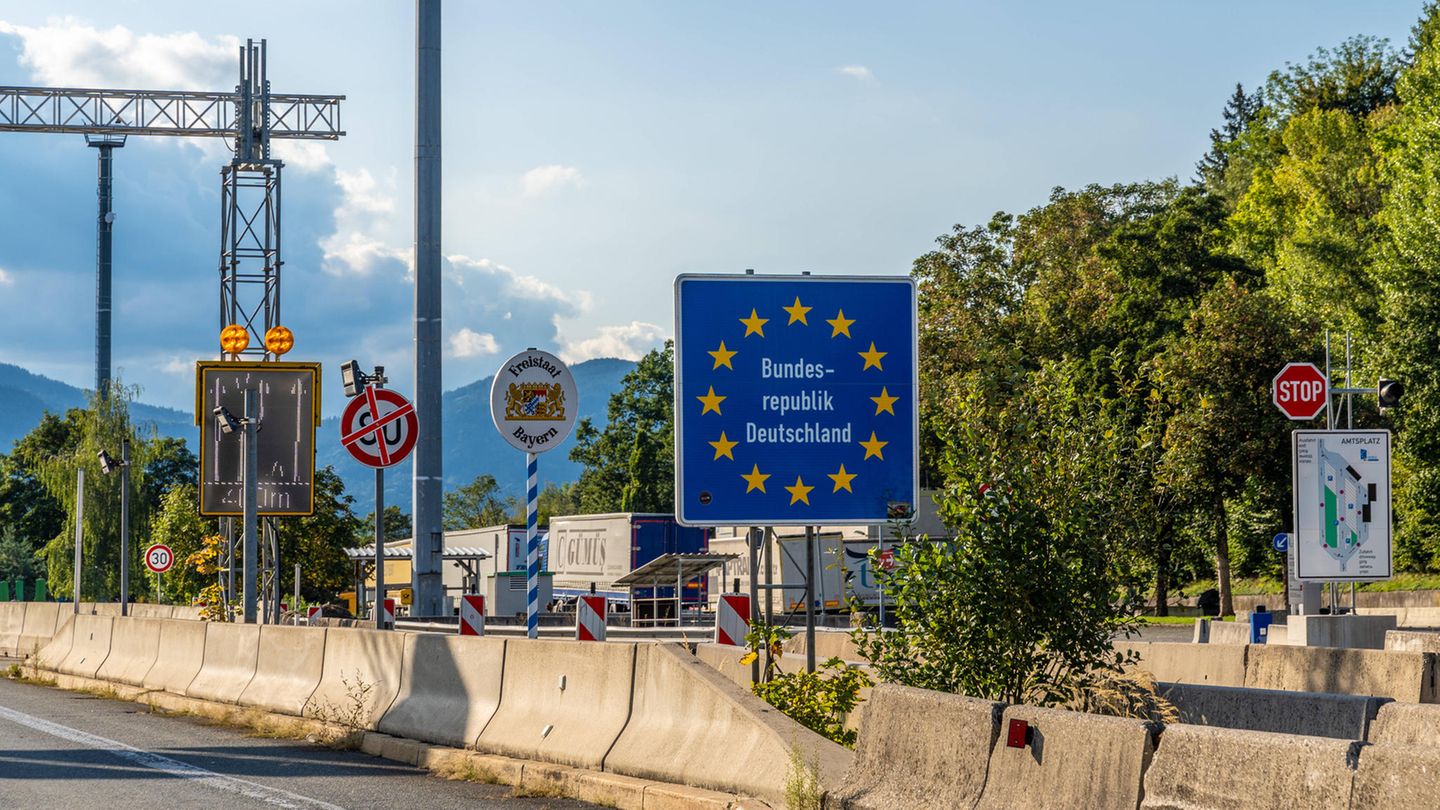The number of asylum applications this year is increasing – many refugees are seeking protection from war, natural disasters or other atrocities in Germany. But the debate about it is becoming more difficult, especially after the elections in Bavaria and Hesse. Scientists demand more humanity.
What is the best way to deal with refugees? With the political and institutional forces that are supposed to take care of them and distribute them as fairly as possible? The debate has heated up again, especially after the state elections in Bavaria and Hesse last Sunday.
State leaders are demanding more money and municipalities are demanding more support. The traffic light coalition is criticized for a policy that is too soft, while the AfD would probably like to expel everyone and Union politicians like Markus Söder are demanding tightening measures such as an upper limit for refugees, which would be difficult to implement under the current Basic Law. At least that’s what various experts say.
But in the debate, the people who are at stake are quickly forgotten: refugees and locals who have fears. Around a quarter of a million who have fled to Germany so far this year to build a better, safer life – and who are probably the least likely to have a say in the debate. And others who are worried about too many strangers and see their familiar environment threatened. That’s why some of them vote for the AfD.
Researchers call for a more humane debate about refugees
In the discussion about possible tightening of asylum law, 270 scientists are now calling for a “human rights pact in refugee policy”. The call basically means adhering to existing principles that Germany has signed.
The researchers criticize in an appeal that the debate about escape and asylum is largely free of facts. “We therefore firmly oppose the attempt to further disenfranchise people on the run through a quick-track procedure and a ‘Germany pact’.” Chancellor Scholz introduced the term “Germany Pact” during a general debate in the Bundestag and called for a national effort to modernize the country.
Ulrike Krause is a political scientist and one of the first signatories of this call. The junior professor for escape and refugee research at the University of Osnabrück is convinced: “Taking in refugees in no way means a collapse of the social order. Flight and migration are part of human history and will remain so.” The call appeals to the federal government and has now found more than 1,500 supporters.
Krause has been researching this area for years and has also been involved with organizations in crisis areas. She urges closer cooperation between the federal government, states, municipalities – and society: “The political debates are becoming increasingly heated and must be led back to human rights fundamentals.” That’s why this pact is needed right now, also in light of the election results.
Migration is an election issue
In Bavaria, one in six people voted for the AfD, and one in five in Hesse. In the post-election surveys, even more people said that the issue of migration was decisive for them in the election (21 percent in Bavaria, 18 percent in Hesse).
The concerns and fears of the population must be taken seriously, says Krause star. But she criticizes the debate about it: “It’s not flight and migration that are the problem and what led to the election results, but the way the political language is used about it.” This has already had terrible consequences, says Krause: “Some politicians are currently literally playing on people’s fears and trying to get votes. The experiences of the 1990s show where this leads.” The researcher refers to the racist attacks in Mölln, Rostock-Lichtenhagen and Solingen.
Instead of constant isolationist discourses, Ulrike Krause calls for this star less Eurocentric perspective. Many refugees come to Germany and Europe. But studies show that in times of crisis, the vast majority first flee within the country or to neighboring countries: “Germany is part of the international community and must act as such. Acting as if everyone wants to come to Germany is simply wrong.”
Escape worldwide
103 million refugees worldwide – these countries take in the most
At the same time, many people are trying to do constructive work. Chancellor Olaf Scholz has repeatedly reminded us of this in recent weeks. Next Friday he invites you to a top-level discussion with state representatives and Union parliamentary group leader Friedrich Merz. As a result, deportations could be made easier and residence permits could be extended under certain circumstances.
The Union praised the draft: “The tightening of the return rules is overdue,” said the deputy chairwoman of the Union parliamentary group, Andrea Lindholz, for example.
The fact is: the federal government is facing major challenges in migration policy. It is not solely responsible for some problems, but it must find solutions that suit as many sides as possible. Researchers like Ulrike Krause urge them not to forget humanity.
Other sources: , , “”, information from news agencies
Source: Stern
I have been working in the news industry for over 6 years, first as a reporter and now as an editor. I have covered politics extensively, and my work has appeared in major newspapers and online news outlets around the world. In addition to my writing, I also contribute regularly to 24 Hours World.




